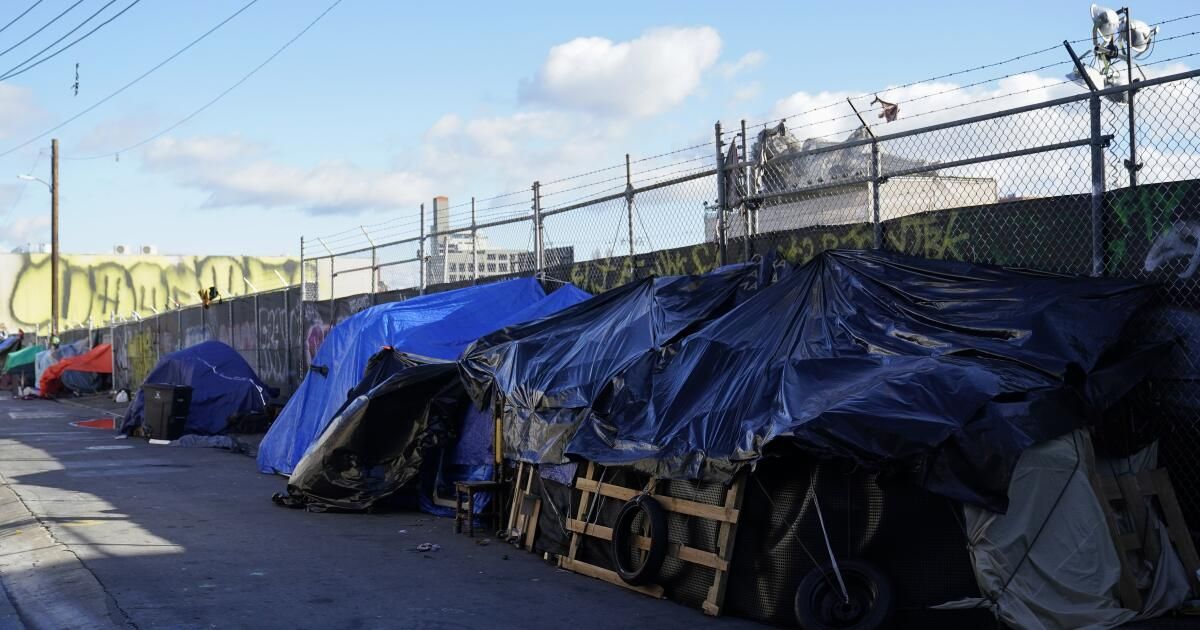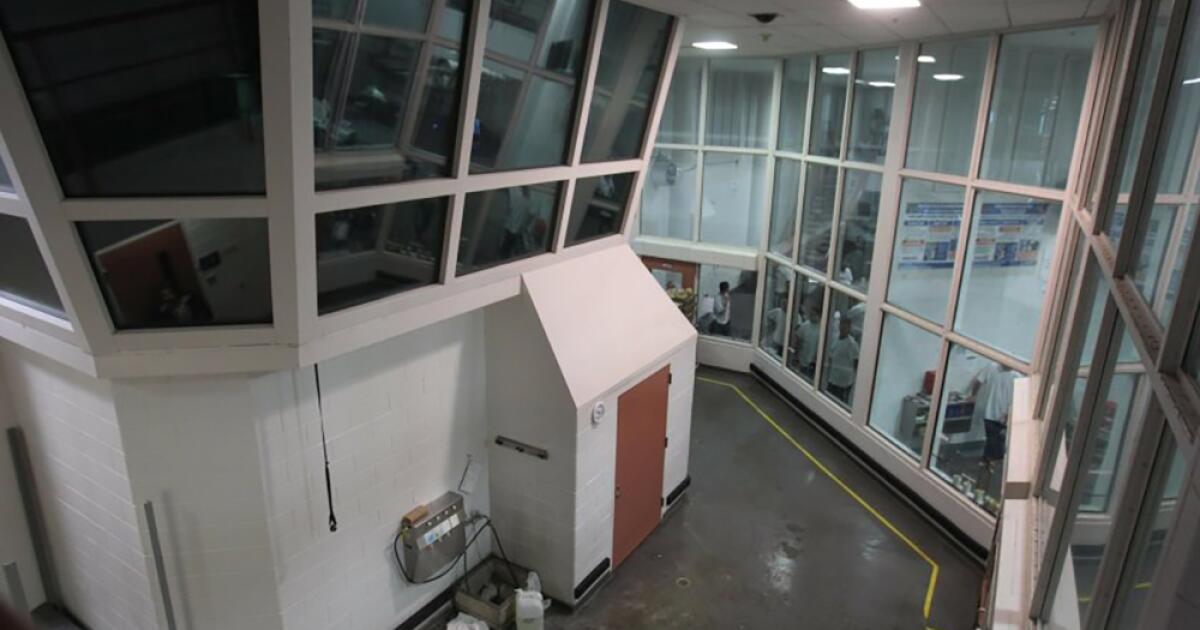San Mateo County officials hope to add an unusual tactic to their multi-pronged approach to addressing the homeless crisis: making it a crime to refuse to accept available temporary housing.
In a unanimous vote this week, county supervisors moved forward with the proposal, despite significant opposition from civil rights groups and some homeless advocates, that would allow authorities to issue a misdemeanor to anyone living in a homeless encampment and refuses to move into an available spot. temporary housing after a health evaluation and at least two warnings.
“One of the most difficult challenges we face is addressing and assisting those in camps who tend to refuse services or decline services,” Supervisor Dave Pine said at Tuesday's board meeting. “The hope is that it will be a tool to help move people to shelter.”
Opponents worry that homelessness will be criminalized.
But Pine, along with board President Warren Slocum, a co-sponsor of the ordinance, said the measure is the latest in a series of comprehensive solutions, including a street medicine team and converting hotels into temporary housing, aimed at reduce homelessness in San Francisco. Mateo County.
“Forty homeless people die each year in San Mateo County. … That's just not acceptable,” Slocum said. This proposal “is not about criminalizing people, but about helping those who really cannot help themselves. … We really have the ability to house people and get them the help they need.”
Officials said the county has up to 30 unused shelter beds available each night, although that number falls short of the estimated 44 people living in homeless encampments throughout unincorporated San Mateo County. Many more encampments are located in the county's 20 cities, including Daly City and Redwood City, but this ordinance would apply only in unincorporated areas.
After San Mateo made investments to respond to the homelessness crisis over the past two years, the number of people on the streets dropped significantly and more people accessed shelter facilities, according to County Executive Officer Mike Callagy.
“Now we have the hard-to-reach population, the population that doesn't want to come in,” Callagy said.
If the proposal wins final approval next week, someone at a camp who rejects an offer of an available bed will have 72 hours to change their mind and will receive two written warnings. After that, authorities could issue a misdemeanor citation, which Callagy said would be handled through diversion programs such as mental health court.
But no one would be cited if county officials don't have a bed available, Callagy said. She emphasized that the goal is not to issue tickets or refer people to the criminal justice system, but to get services and housing to those who need them.
“We believe that once they are offered those options, most people will take advantage of the services,” Callagy said. He hopes that citations will rarely be issued, but rather used as a deterrent.
“At the end of the day, this is about saving lives,” said David Canepa, another county supervisor. “I don't believe in the narrative that we shouldn't do anything.”
County officials who promoted the proposal said it was based on a Houston ordinance, adopted in 2017, that made homeless encampments illegal on public property and sought to funnel people into temporary housing. While the program has been noted for its success in eliminating encampments and helping people get off the streets, the Houston Chronicle found that fines and arrests for violating the provision (given only after a warning and an offer of housing) continue to increase.
While many West Coast municipalities face legal obstacles to clearing encampments, San Mateo County attorneys said the ordinance adheres to legal precedent protecting the right to sleep outdoors when alternative housing is not available.
In Los Angeles, city officials have been making efforts to address growing encampments by encouraging people to accept temporary shelter and enforcing laws that prohibit blocking sidewalks or other specific locations.
In San Mateo County, the proposed ordinance has drawn critics, including from the American Civil Liberties Union, religious leaders and the San Mateo County Private Defender Program, which represents indigent defendants. Critics say they are concerned about the unintended consequences of such a law.
“Policing is not a way to get people into treatment,” said William Freeman, senior council member of the ACLU of Northern California, denouncing the “seriously flawed ordinance.”
While he praised the county for its recent work on homelessness, he said “anti-camping ordinances invite over-policing and abuse.”
Lauren P. McCombs, an Episcopal deacon and Bay Area Faith in Action leader, called the criminalization of homeless people “inhumane treatment of our homeless neighbors.”
“Our county needs to solve this crisis by ensuring safe, affordable housing options are available to all residents, with strong incentives and without threats of incarceration,” McCombs said.
On Tuesday, county officials took into account some public concerns and amended the ordinance to include a health assessment before warnings are issued and a review process scheduled to begin after a few months.
Supervisor Noelia Corzo said her half-brother is homeless in San Mateo County, so she knows firsthand how complex the problem is. She said she is proud of the county for “doing something different.”
“I don't take it lightly,” he said, “but doing nothing doesn't work either.”












